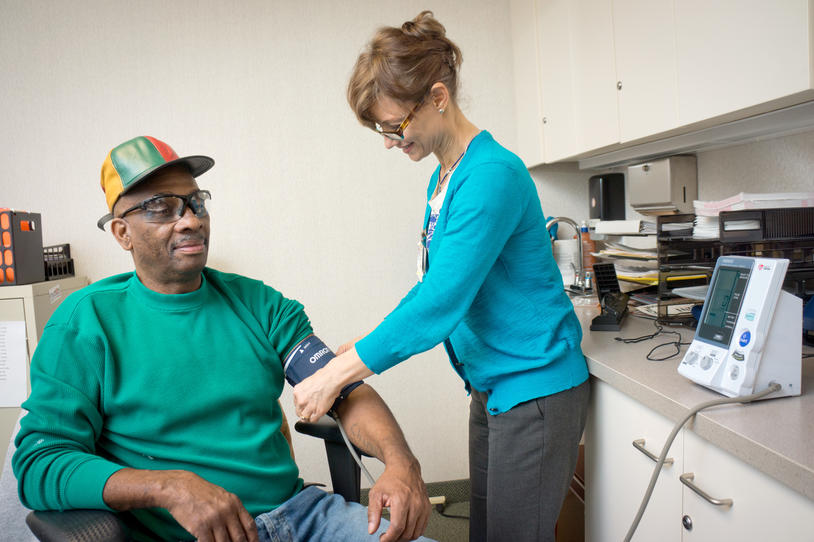
Join The Michael J. Fox Foundation’s mission to discover better treatments and, ultimately, a cure for Parkinson's disease. Whether you have Parkinson’s or not, participating in research is a powerful way to contribute to these efforts. In this research roundup blog, we highlight MJFF-funded and partner studies currently seeking volunteers. Some of these clinical studies focus on treating motor symptoms and slowing disease progression, while others involve long-term participant observation to deepen our understanding of the disease.
Explore the links to find out how you can get involved in each study, and please share this information with your networks.
Landmark Study Enrolling Anyone Aged 18+: MJFF’s landmark study, the Parkinson’s Progression Markers Initiative (PPMI), is recruiting volunteers with and without PD. The study is exploring how brain disease starts and changes in people of all backgrounds. PPMI is open to anyone over age 18 in the U.S. Learn more and join the study that’s changing everything.
Smell loss can be an early sign of Parkinson’s risk. PPMI is also offering free scratch-and-smell tests to anyone age 40 and up, with and without Parkinson’s. Request a free test today and help scientists learn more about brain disease and develop new treatments at mysmelltest.org/mjff.
- A Study to Slow Parkinson’s Progression: The REGENERATE-PD study is testing a one-time gene therapy (AB-1005) to see if it can improve motor and non-motor symptoms in people with moderate Parkinson’s disease. Gene therapy is a medical treatment that fixes or replaces non-working genes to help prevent or cure diseases. Sponsored by AskBio, a subsidiary of Bayer, the study aims to help the brain produce more protective proteins called GDNF (glial cell line-derived neurotrophic factor). It involves a procedure to directly deliver therapy into the part of the brain that controls motor symptoms. After the procedure, participants will need follow-up visits every three to six months for up to five years. The study is enrolling people with Parkinson’s age 45 to 75 who had a diagnosis for four to 10 years. It is looking for people who are experiencing motor fluctuations despite being on medications such as levodopa for at least one month. Read more about the study and find out if you are eligible to participate.
- An Oral Treatment for Early Parkinson’s: The SUNRISE-PD study is testing an oral treatment called bezisterim (NE3107). The treatment targets inflammation and insulin resistance in the brain, with the aim to improve motor symptoms in Parkinson’s disease. Sponsored by BioVie, the study lasts about 20 weeks and can be done either from home or in person at a clinical site. The study is enrolling participants between age 45 and 80 who were diagnosed with Parkinson’s within the last 18 months. Before joining the study, participants cannot have started common Parkinson’s medications like levodopa. Learn more and find a site near you.
- A Gene Therapy Targeting GBA1 in Parkinson’s: The PROPEL study is testing a one-time gene therapy called PR001 for people with Parkinson’s who have a GBA1 gene mutation. Gene therapy is a medical treatment that fixes or replaces non-working genes to help prevent or cure diseases. The treatment is delivered through a single injection and aims to address underlying causes of the disease by increasing enzyme activity in the brain. Sponsored by Prevail Therapeutics, a subsidiary of Eli Lilly, the study will assess the safety and effectiveness of the therapy over 18 months in two separate groups. Each group will receive a different dose. Longer-term follow-up will take up to five years. The study is enrolling participants age 35 to 80 who have been diagnosed with Parkinson’s and have at least one GBA1 mutation. Read more eligibility and find a site near you.
- A Study to Reduce “off” time in Parkinson’s: The ARISE study is evaluating an oral medication called solengepras (CVN424) for people with Parkinson’s disease experiencing motor symptoms that aren’t well controlled. Sponsored by Cerevance, the study aims to assess whether solengepras can reduce “off” time, the period of when symptoms return despite medication, and improve “on” time without dyskinesia. Lasting about 12 weeks, the study is enrolling individuals age 30+ who have been diagnosed with Parkinson’s disease, experience at least three hours of daily “off” time and are on stable Parkinson’s medication. Learn more about the study and see if you qualify to join.